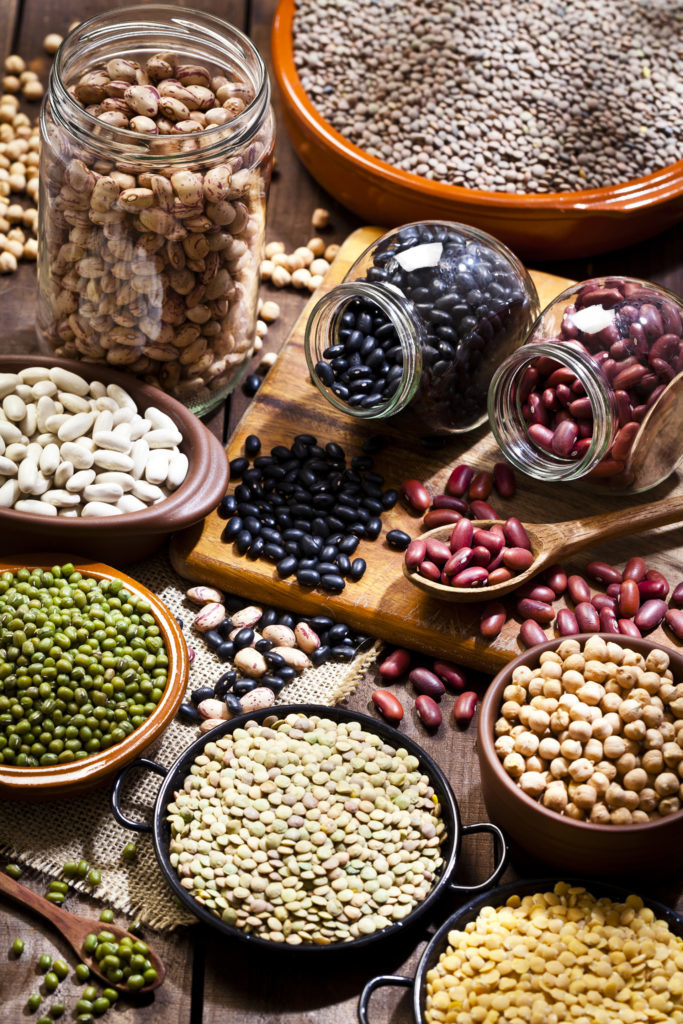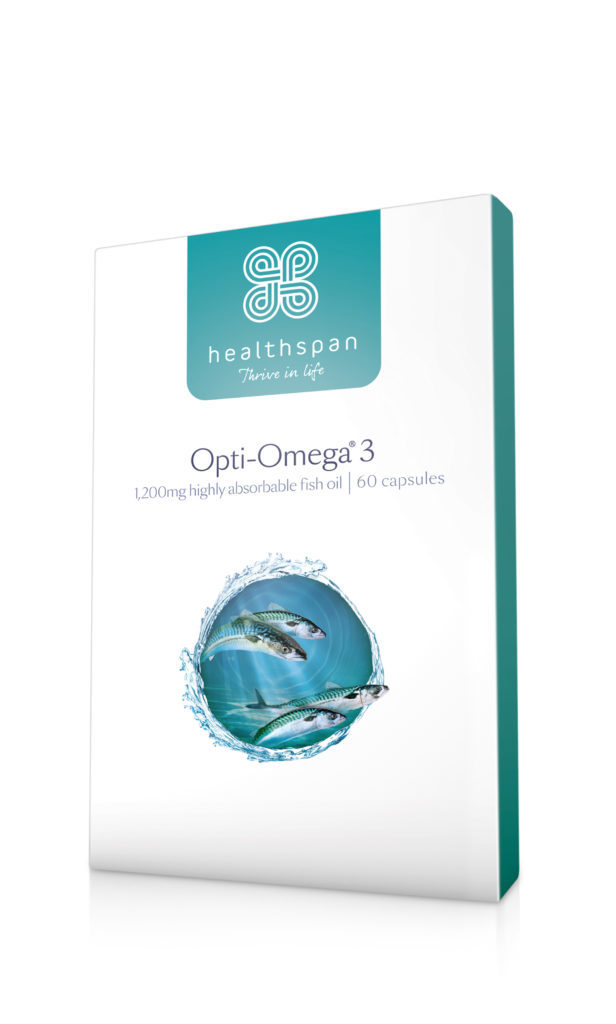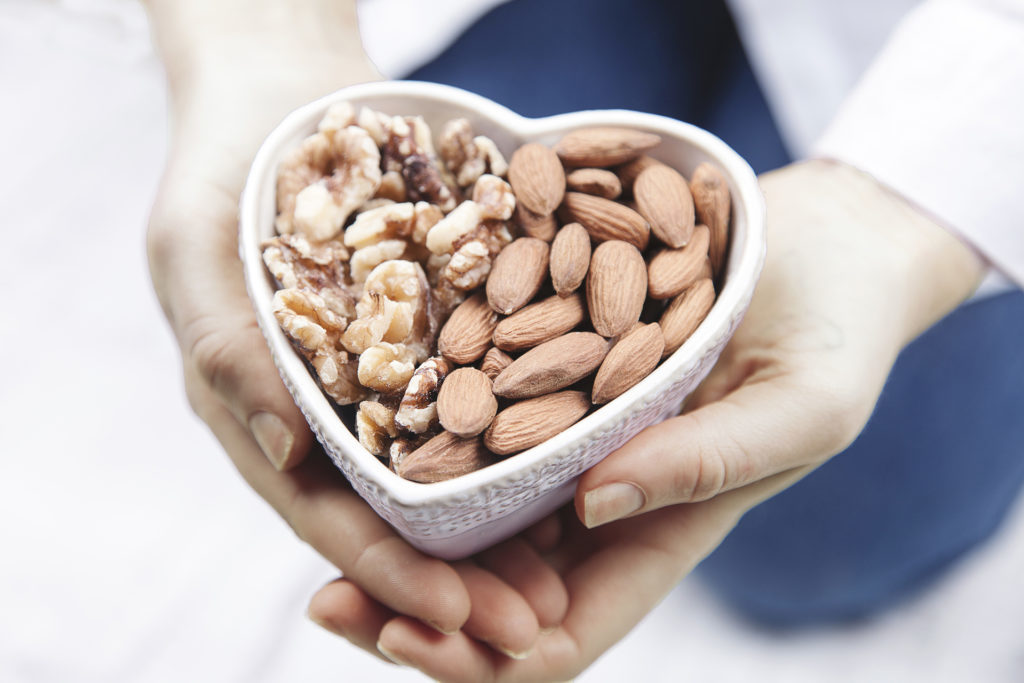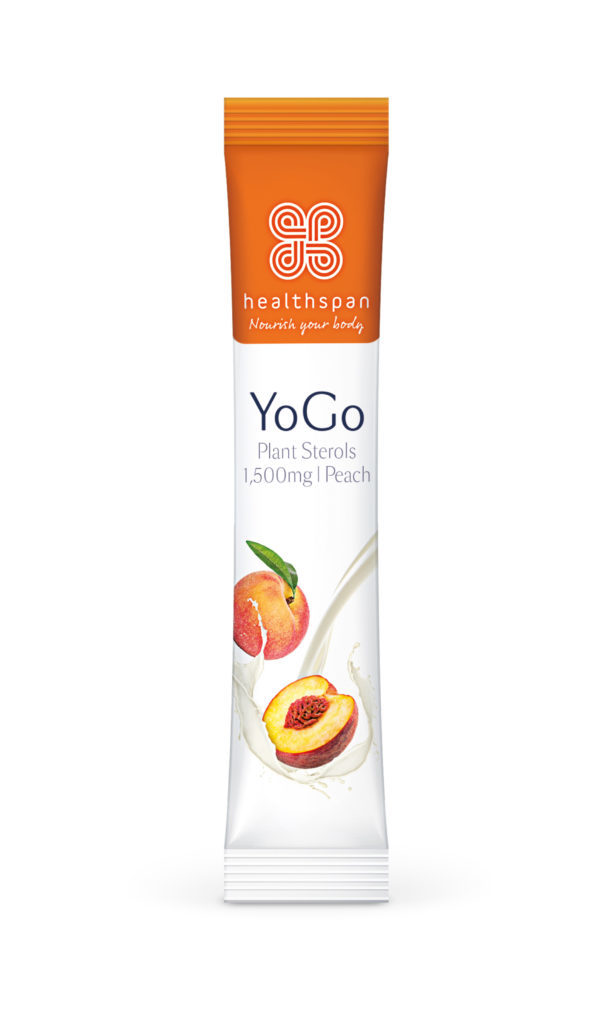The Best Foods For Heart Health
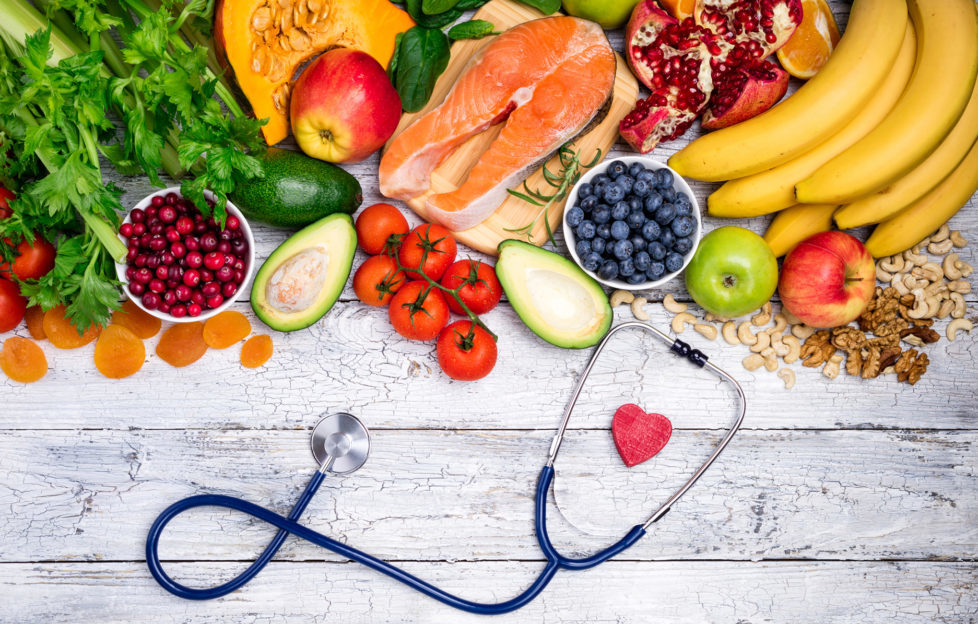
Registered nutritionist and Healthspan Head of Nutrition Rob Hobson explains why diet is so important for good heart health and what foods we should be eating to keep our hearts in the best possible working order.
Cardiovascular disease (CVD) is the term used to describe a group of conditions that can affect the heart including coronary heart disease, heart attack and stroke. According to the British Heart Foundation, coronary heart disease (CHD) is the UK’s biggest single killer and affects three million people living with the condition. The risk of CVD disease increases with age and is more common amongst men than women until after the menopause when the drop in oestrogen aligns the risk amongst the sexes.
What you choose to eat has a big impact on your heart health. Diet helps to reduce risk factors for CVD that include high cholesterol, high blood pressure, type 2 diabetes and being overweight. The Mediterranean diet is considered to be the gold standard for a healthy heart and has been the focus of much research for many years now. Plenty of antioxidant rich fruits and vegetables, the inclusion of foods with a high monounsaturated fat content such as olive oil and nuts, as well as high-fibre grains and oily fish as well as a low sugar and red meat intake are what makes this diet so cardio-protective.
Diet can have a significant impact on your heart health and it’s never too late to start to eat well and reduce your risk of disease. Start by making small changes to the way you eat and include functional foods and supplements shown to help with risk factors such as high cholesterol.
Heart healthy foods
Groups of foods have been shown to play a role in heart health by reducing inflammation and maintaining healthy blood pressure and cholesterol levels as well as helping with weight loss, which are all risk factors for CVD.
| Food group | Foods | Purpose | How much |
| Fruit and vegetables | All of them | Increase fibre to reduce cholesterol and overall risk of heart disease. Increase micronutrient intake such as potassium, folate linked to heart health. | At least 5-a-day |
| Wholegrains, beans and pulses | Brown rice, chickpeas, red kidney beans, oats, barley, wholemeal pasta, wholegrain bread
|
Increase fibre, especially beta glucans (oats, barley) shown to reduce cholesterol | 2-3 servings daily and switch from white to brown carbohydrate foods |
| Omega 3 foods | Fresh salmon, trout, sardines, anchovies, dark green leafy vegetables, walnuts, quinoa, chia seed, flax seed oils.
|
Increase HDL (good) cholesterol, reduce inflammation and thin the blood | At least one serving of oily fish and plenty of plant sources of this fatty acid weekly |
| Other healthy fats | Nuts, seeds, extra virgin olive oil, olives | Lower LDL (bad) cholesterol, increase HDL (good) cholesterol, reduce inflammation, rich in micronutrients | Switch to extra virgin olive oil and include one handful of nuts daily. |
| Soy foods | Fortified soya milk, tofu, soya mince, soya beans | Soya protein shown to help reduce cholesterol | Include a couple of servings daily |
| Plant sterols | Functional foods such as milks, shots and spreads. Supplements. | Help reduce cholesterol | 1-2 daily servings or a daily supplement |
Fruits and vegetables – it’s so simple – just eat all of them!
Aim for at least 5-a-day
This food group provide key vitamins and minerals such as potassium (helps maintain healthy blood pressure) and folate (reduces homocysteine levels in the blood – risk factor for heart disease) as well as antioxidants that have a key role in protecting the body from disease.
Certain fruits such as apples, grapes and prunes contain soluble fibres called pectins that help to reduce cholesterol. Avocados like many other fruits and vegetables contain a good source of potassium, which helps maintain fluid balance in the body and maintains healthy blood pressure. Food surveys show that the average intake of potassium amongst adults (19-64 years) is only 82% of the RDA and only 78% for those over 65 years old. This underachievement of potassium is likely due to a low intake of fruits and vegetables as only 31% of under 64 year olds and 26% of over 65s achieve 5-a-day.
Wholegrain foods, pulses and beans – brown rice, chickpeas, red kidney beans, oats, barley, wholemeal pasta, wholegrain bread
Aim for 2-3 servings daily and switch white for brown carbs
These foods are the richest source of fibre, which is lacking in the diet of most adults in the UK. Average intake is about a third of the 30g per day recommendation and only 9% of adults aged 19-64 years and 7% of over 65s achieve this. Oats and barley are rich in a form of soluble fibre called beta-glucan that once eaten forms a gel, which helps bind cholesterol in the intestines and prevent it from being absorbed. A diet high in fibre has also been shown to reduce the risk of type 2 diabetes and help manage weight.
Omega 3 foods – Fresh salmon, trout, sardines, anchovies, dark green leafy vegetables (kale, Brussels sprouts and spinach), walnuts, quinoa, chia seed and flax seed oils
Aim to eat plenty of plant sources and at least one serving of oily fish weekly
Fresh oily fish are the richest source of the most essential omega 3 fatty acids, EPA and DHA. Intake in the UK is well below the recommended intake of one serving per week, with many people not eating any oily fish at all. Oily fish have been shown to reduce the risk of heart disease as part of a balanced diet and active lifestyle. This is because they increase levels of good (HDL) cholesterol and produce compounds known as prostaglandins that help to reduce inflammation in the body. Long-term inflammation can damage healthy cells and weaken the immune system and this is thought to be a contributory factor for many diseases including those of the heart. Plant sources are useful but need to be converted in the body by a process that is not that efficient. If you don’t eat oily fish, then try investing in a good quality omega 3 supplement such as Healthspan Opti-Omega (£12.95 for 60 capsules).
Other healthy fats – extra virgin olive oil, nuts, seeds and olives
Try to include nuts and seeds daily and switch to extra virgin olive oil for all uses
These include monounsaturated fats found in avocados, nuts and extra virgin olive oil. These fats increase HDL (good) cholesterol and lower LDL (bad) cholesterol. Research has shown how nuts appear to be particularly useful at lowering cholesterol levels in the blood. Along with healthy fats, nuts are rich in vegetable protein, fibre, vitamin E, magnesium, potassium, natural plant sterols and a host of beneficial plant nutrients. 30-35g a day of nuts (a handful) has the potential to lower cholesterol by an average of 5%.
Soy foods – fortified soya milk, tofu, soya mince and soya beans
Include a couple of servings daily to help reduce cholesterol
Unique soy proteins have been shown to help reduce cholesterol and blood pressure. Although not that common to the British diet, a few servings a day could easily be incorporated into the diet by switching to fortified soya milk and including foods such as edamame, tofu, miso or soya mince. Studies show you can lower your cholesterol by around 6% by including as little as 15g soya protein per day.
Plant sterols – functional foods (milks, shots, spreads), supplements, nuts and seeds
Aim for a couple of functional food products or a supplement daily whilst eating plenty of vegetables, whole grains, nuts and seeds as part of a healthy balanced diet
The cholesterol lowering effects of these compounds has been known for some time and although they are naturally found in a wide range of foods such as vegetable oils, nuts, seeds, whole grains, fruits and vegetables, it is not possible to achieve the optimum intake from ordinary foods. An intake of 1.5-2.4g plant sterols everyday has been shown to reduce cholesterol by 7-10% over 2-3 weeks. They work by blocking cholesterol absorption in the gut and can be obtained from functional food products such as spreads, milks and shots as well as supplements or the new Healthspan YoGo Plant Sterols (1,500mg) if you don’t fancy taking a supplement (20 sticks £14.99).


